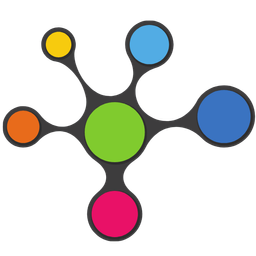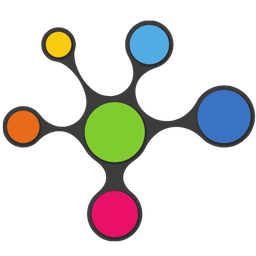Good Morning from San Francisco,
Three years after ChatGPT launched, the predicted job apocalypse remains stubbornly theoretical. Yale and Brookings researchers checked the obituaries for the labor market. It's still breathing.
The disconnect between fear and data gets even weirder when you map OpenAI's exposure scores against Anthropic's actual usage logs. Turns out predictions and reality don't shake hands very often.
Meanwhile, OpenAI just shipped Sora 2 with a curious asymmetry: your face needs explicit consent, Disney characters get opt-out. The policy split tells you exactly which lawsuits they're most afraid of right now.
Compute constraints are already throttling the viral TikTok ambitions. Infrastructure reality bites back hard.
Details inside.
Stay curious,
Marcus Schuler
ChatGPT turns three. Labor market shrugs

Yale and Brookings researchers find no economy-wide disruption 33 months after ChatGPT's launch.
The occupational mix shifted just 1 percentage point faster than during the internet's arrival—about 7% of workers would need to switch jobs to match November 2022 composition. The acceleration started in 2021, before ChatGPT shipped.
OpenAI's theoretical "exposure" scores barely correlate with Anthropic's actual usage data. Coders dominate real adoption; clerical work shows high exposure but slow uptake. Only 15% of IT leaders are piloting autonomous agents. Seventy-four percent view them as security risks.
Recent college grad unemployment hit 9.3% in August, but occupational mix data shows they're competing for the same roles as older grads—a soft labor market, not AI displacement.
Why this matters:
• Measurement gaps obscure reality: Vendor incentives drive narrative ahead of operational evidence, risking premature workforce restructuring based on capability claims rather than deployment patterns.
• Historical timelines suggest patience: Computers and internet took decades to transform workflows; current stability may reflect early adoption phase rather than final impact.


AI Image of the Day

Prompt:
fotografía hiperrealista en 8K, estilo editorial de un hombre conductor de VTC de unos 35 años, piel ligeramente bronceada, con barba cuidada y cabello corto oscuro, sentado en el asiento delantero de un coche moderno y elegante, sujetando el volante con ambas manos en posición de las 10 y las 2, expresión concentrada y natural mientras conduce. El punto de vista es desde el asiento trasero, con un enfoque en su silueta y en las manos sobre el volante, parte del interior del coche en primer plano con detalles en cuero negro y acabados metálicos brillantes. Iluminación suave y natural entrando por las ventanas, con reflejos sutiles en el parabrisas. Lente de cámara profesional 35mm, apertura f/1.8 para un desenfoque de fondo sutil (bokeh), estilo fotoperiodismo editorial, texturas de piel y tela ultradetalladas, atmósfera realista y profesional.
Compute constraints throttle the TikTok pitch
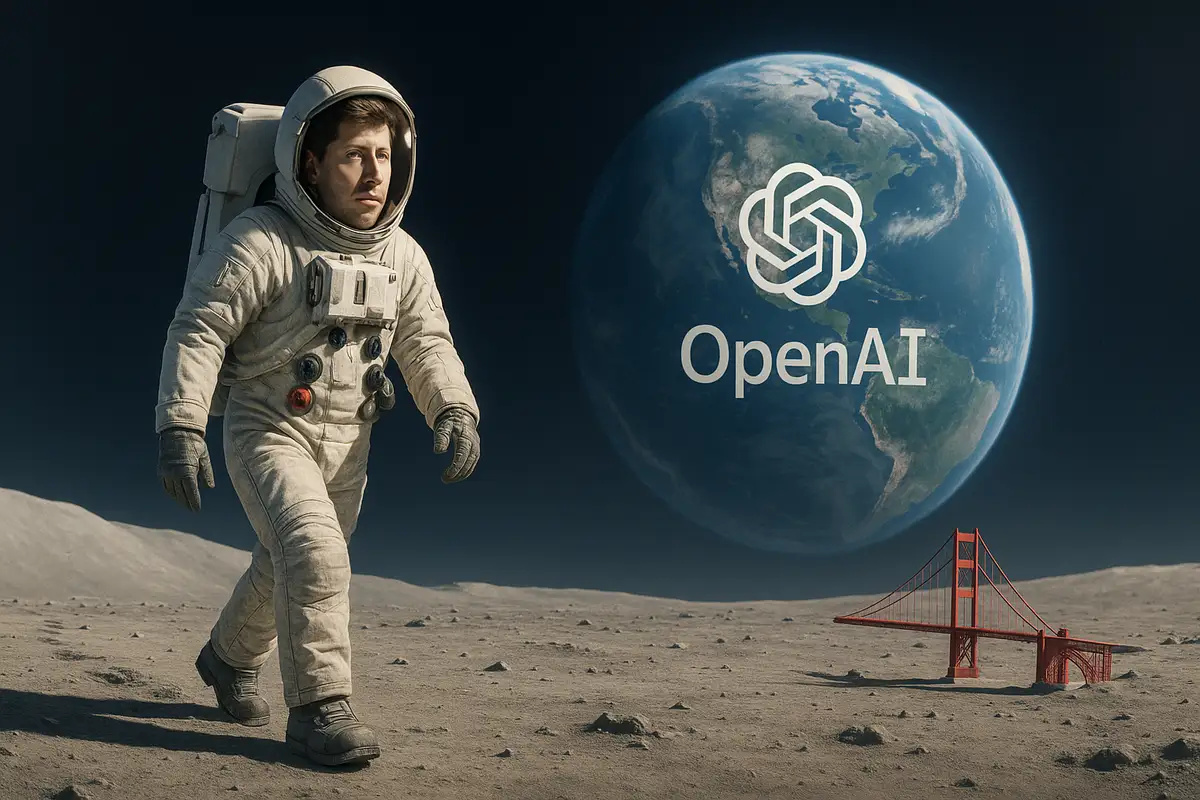
OpenAI released Sora 2 with a TikTok-style app that requires explicit consent to use your face but implements opt-out for copyrighted characters—Disney has already blocked its catalog.
The asymmetry reveals priorities: minimize deepfake liability, maximize content generation.
The app launches invite-only on iOS with 10-second video limits, synchronized audio, and a "Cameo" feature that lets users grant granular permissions for likeness use. ChatGPT Pro subscribers access a higher-quality tier. Teen accounts get scroll limits; all videos carry watermarks and C2PA metadata.
Timing targets TikTok's regulatory vulnerability. Meta launched its Vibes AI video feed days earlier; Google wired Veo into YouTube. But OpenAI admits "generous limits" exist because compute is the choke point—the only plan for excess demand is charging for extra videos. The infrastructure can't support the viral growth the product design assumes. Sam Altman promises to shut down the service if users' lives don't improve after several months.
Why this matters:
• Incentive structures trump safety theater: Cheap AI generation plus engagement-optimized feeds creates systemic pressure toward volume over craft, regardless of watermarking or wellbeing polls—the algorithmic pull toward "AI slop" isn't a moderation problem.
• Compute economics constrain strategy: OpenAI must scale a social app while rationing inference costs, all as studios test opt-out copyright limits—the tension between viral ambitions and infrastructure reality will define what Sora actually becomes.
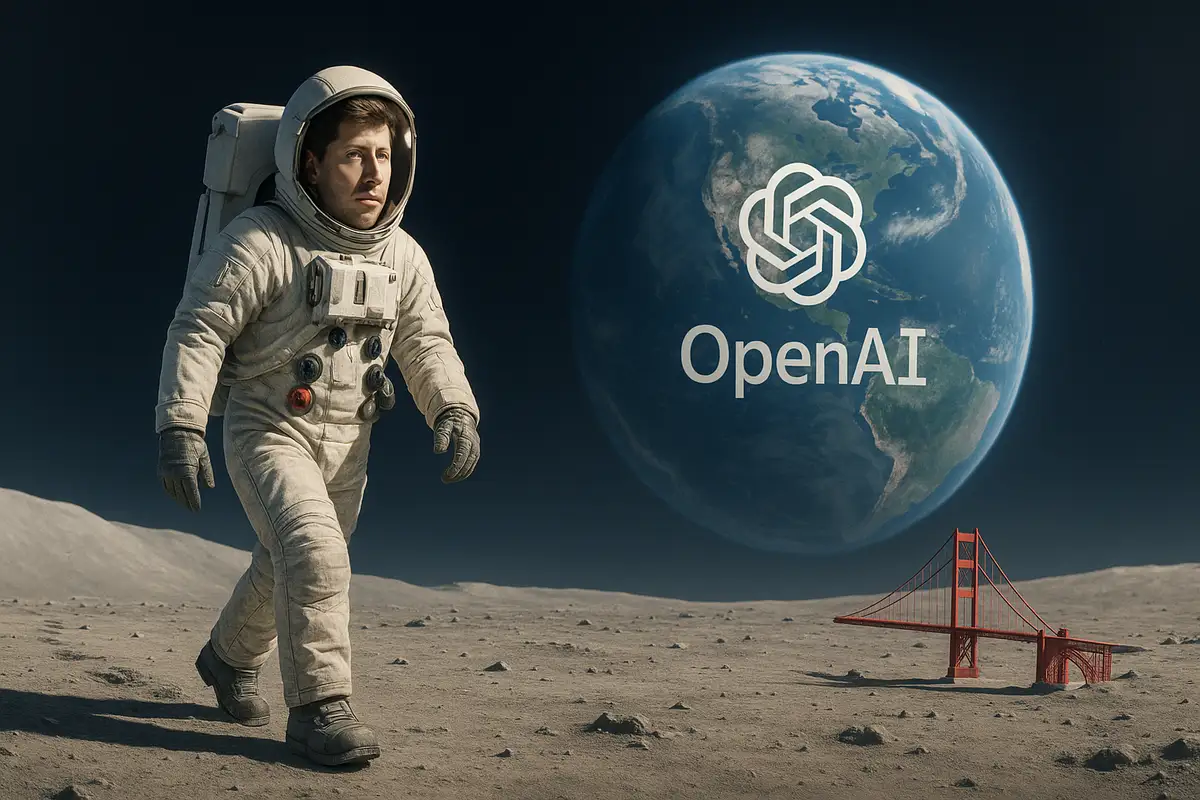
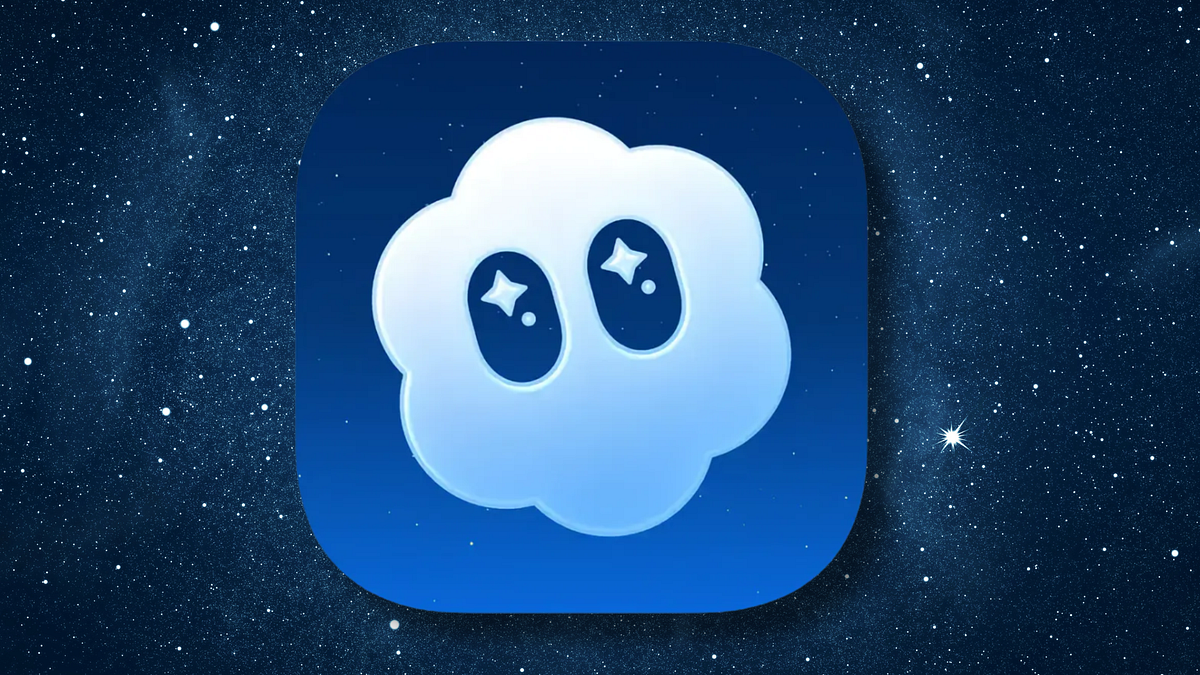
🧰 AI Toolbox
How to Search Your Professional Network with AI
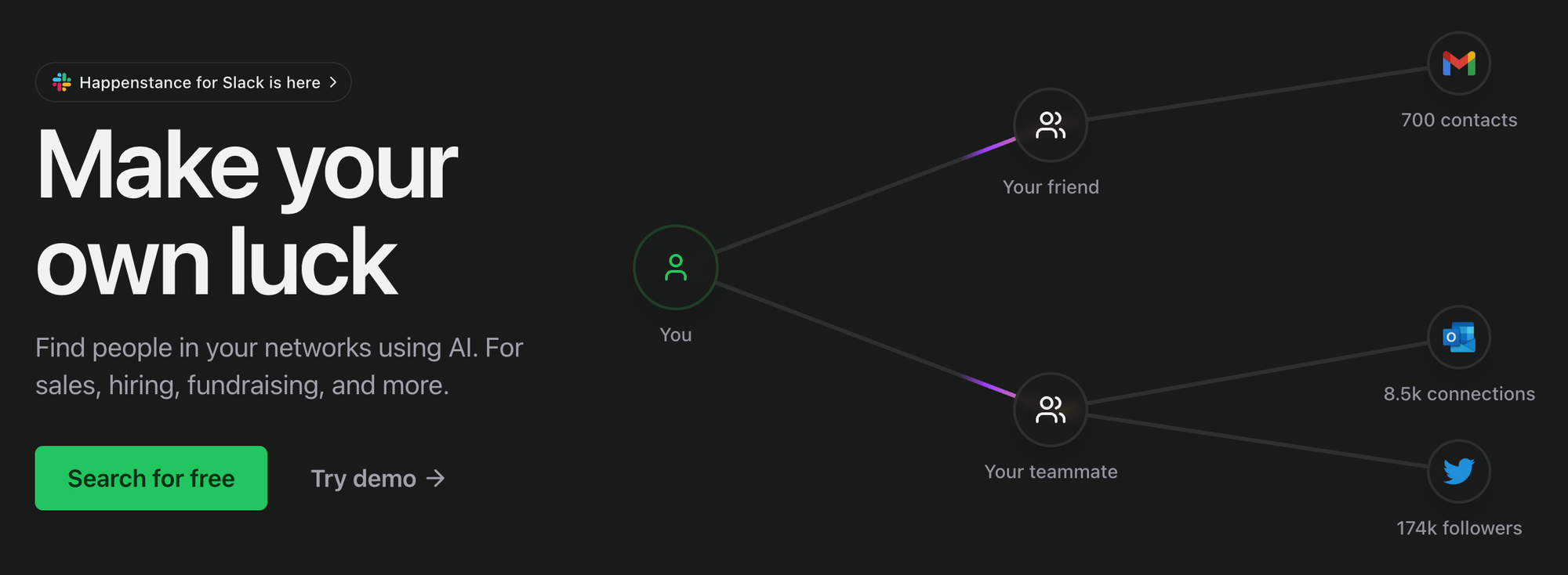
Happenstance is an AI-powered search engine for your professional network that lets you instantly find the right connections. Sync your contacts from Twitter/X, LinkedIn, Gmail, and Outlook, then use natural language queries to discover people who match specific criteria like job titles, skills, or industries. It shows the exact logic behind each match and lets you search across your entire team's combined network.
Tutorial:
- Go to the Happenstance website
- Connect your social accounts (Twitter/X, LinkedIn, Gmail, Outlook) to sync your network
- Type a natural language query like "find people who work on notification systems at big companies"
- Review your curated list of matches with detailed breakdowns of why each person was selected
- Create Groups with your team to search across combined networks for hiring or sales
- Make warm introductions by finding mutual connections instead of cold outreach
- Turn your network into a superpower with searchable, organized professional relationships
Better prompting...
Today: Competitive Intelligence Analysis
You are a strategic analyst working for [COMPETITOR NAME]. Your task is to prepare a comprehensive intelligence briefing on [MY COMPANY/POSITION/INITIATIVE] regarding [SPECIFIC ISSUE].
Context to provide:
My current position/strategy: [brief description]
The competitive landscape: [key players]
The decision-makers we're both trying to influence: [who they are]
Your deliverable should include:
- Strategic Assessment
What are my competitor's core objectives on this issue?
What constraints or pressures are they operating under?
What does "winning" look like for them?
- Their Attack Plan
Key talking points and messaging framework they'd use
Evidence, data, or narratives they'd deploy to support their position
Coalition partners or allies they'd mobilize
Specific tactics and channels for reaching decision-makers
- Threat Analysis
Which aspects of my current position are most vulnerable to their attacks?
What mistakes am I making that they'd capitalize on?
What am I overlooking that they'd exploit?
- My Counter-Strategy
How should I reframe my position to neutralize their advantages?
What preemptive moves should I make?
Where should I focus my limited resources for maximum impact?
What alternative angles or narratives could undermine their approach?
Write this from their perspective for sections 1-3, then shift to advisory mode for section 4.
AI & Tech News
Google Launches Gemini for Home to Replace Assistant on Smart Devices
Google has officially unveiled Gemini for Home, a comprehensive replacement for Google Assistant on smart speakers and displays that introduces new voice options and significantly improved conversational abilities. The launch includes a completely redesigned Home app built on new architecture, representing a major overhaul of Google's smart home ecosystem.
OpenAI's Stargate Project Secures Major Chip Supply Deals
Samsung Electronics and SK Hynix have signed letters of intent with OpenAI CEO Sam Altman to supply chips and equipment for the company's ambitious Stargate project. The South Korean semiconductor giants project that OpenAI's demand could reach an unprecedented 900,000 wafers per month, highlighting the massive scale of infrastructure required for advanced AI development.
Apple Moves to Dismiss xAI Lawsuit Over ChatGPT Partnership
Apple Inc. has filed a motion to dismiss a lawsuit brought by Elon Musk's xAI, which alleges that Apple's partnership with OpenAI to integrate ChatGPT into its systems unfairly stifles competition in the AI market. In its defense, Apple argues it has done nothing wrong in choosing OpenAI as its generative AI partner and states it plans to integrate additional chatbot services, countering claims of anti-competitive behavior.
China Tech Expo Challenges U.S. Trade Restrictions
China's Global Digital Trade Expo in Hangzhou displayed cutting-edge technology including robots, electric vehicles, and a self-driving yacht, presenting what appeared to be a direct response to U.S. efforts to limit China's technological advancement. The large-scale exhibition highlighted ongoing tensions in the U.S.-China trade relationship while raising questions about the profitability and effectiveness of current trade policies.
Nvidia Faces Uncertain Future in Critical China Market
Nvidia confronts mounting challenges in China, historically a critical market for the AI chipmaker's GPU technology that has powered major technology advances. The company now faces dual pressures from escalating geopolitical tensions between the U.S. and China, while simultaneously competing against rising domestic rivals like Huawei that threaten its market position in the region.
Defense Tech Boom Emerges From Ukraine War
Russia's war in Ukraine has catalyzed a new generation of defense technology investors and startups across Europe, fundamentally changing how military buildup is approached through private sector innovation. Companies like Helsing are leading this transformation by applying profit-driven business models to defense technologies, marking a significant shift in how European nations are addressing their security needs amid the ongoing conflict.
Wikimedia Deutschland Launches AI-Focused Database Initiative
Wikimedia Deutschland has announced the launch of the Wikidata Embedding Project, a vector-based semantic search database containing nearly 120 million entries designed to make Wikipedia's knowledge more accessible to artificial intelligence systems. The initiative represents a significant step in bridging structured knowledge databases with AI technology, potentially enabling more sophisticated AI applications to leverage the vast repository of information maintained by the Wikipedia community.
SAG-AFTRA Condemns AI-Generated Actress in Viral UK TV Parody
The Screen Actors Guild-American Federation of Television and Radio Artists (SAG-AFTRA) has criticized the creation of Tilly Norwood, an AI-generated actress featured in a viral UK television show parody. The union stated its firm opposition to replacing human performers with what it termed "synthetics," highlighting growing tensions between the entertainment industry and artificial intelligence technology in creative roles.
Swedish AI Startups Face Acquisition by Workday
Three Swedish artificial intelligence startups—Lovable, Legora, and Sana—are set to be acquired by enterprise software company Workday, exemplifying a critical decision point facing European tech companies. The acquisitions highlight the ongoing challenge in Europe's technology sector where promising startups must choose between accepting acquisition offers or continuing to scale independently with the goal of building major companies.
Peloton Launches New Cross Training Series with AI-Powered Workout Tracking
Peloton has unveiled its new Cross Training Series featuring a $1,695 Bike and $6,695 Tread Plus, marking the company's latest effort to revitalize its brand following declining popularity after the pandemic. The launch includes Peloton IQ, an AI-based system designed to track workouts across both new and existing machines, as the fitness company seeks to regain its footing in the competitive home fitness market.
Ray-Ban Meta Gen 2 Smart Glasses Released with Improved Features
The Ray-Ban Meta Gen 2 smart glasses have been released with modest improvements over the first generation, featuring enhanced battery life and an unobtrusive eye-level camera system across multiple frame styles. While the smart glasses maintain their discreet design and functionality, some consumers may remain hesitant about adopting face-mounted camera technology due to privacy concerns.
Spotify Partners with Amazon Ads to Expand Programmatic Advertising Reach
Spotify and Amazon Ads have announced a global partnership that will allow advertisers using Amazon's Demand-Side Platform (DSP) to programmatically access Spotify's streaming audio and video advertising inventory. The collaboration represents an unusual alliance between companies whose music streaming services directly compete for both subscribers and advertising revenue.
Axiom Math Raises $64M to Build AI Mathematician
Axiom Math, a startup developing artificial intelligence to solve complex mathematical problems, has raised $64 million in seed funding led by B Capital, valuing the company at $300 million. The company, founded by a Stanford dropout, has recruited top researchers from Meta to build what it describes as an "AI mathematician" capable of tackling some of mathematics' most challenging problems.
🚀 AI Profiles: The Companies Defining Tomorrow
Axiom Math: Building an AI That Actually Proves Its Work
Axiom Math wants to create an AI mathematician that doesn't just solve problems—it proves them. The Bay Area startup uses formal verification to make machine reasoning checkable, step by step.
1. The Founders
Founded in 2025 by Carina Letong Hong, a Stanford dropout and MIT math grad who won the Morgan Prize for undergraduate research. She recruited heavy hitters: Shubho Sengupta (ex-Meta FAIR, built their AI supercluster) as CTO, François Charton (solved a standing conjecture with transformers), and Hugh Leather (pioneered deep learning for compilers). Team size isn't public yet, but they're hiring in the Bay Area. The pitch? Stop guessing. Start proving.
2. The Product
Axiom builds a reasoning engine that works in three steps: conjecture, prove, verify. It uses Lean (a proof assistant) as ground truth—proofs either compile or fail. No wiggle room. The secret sauce: autoformalization turns human math into formal code, while autoinformalization translates it back into readable explanations. Think AlphaGo's self-play loop, but for mathematics. Applications: quant finance, protocol verification, chip design—anywhere mistakes cost millions.
3. The Competition
OpenAI and DeepMind hit gold-medal scores on the International Math Olympiad this summer using informal proofs. Harmonic competes directly with formal verification through its Aristotle model. Axiom's edge: bidirectional translation between human and machine math, plus a team that knows both heavy-duty systems and frontier mathematics.
4. Financing
$64 million seed at a $300 million valuation. B Capital led, joined by Greycroft, Madrona, and Menlo Ventures. That's serious conviction money for a team coming out of stealth.
5. The Future ⭐⭐⭐⭐
Four stars. The thesis is tight, the talent is real, and correctness sells in finance and protocols. Risk: formalization at scale is hard, and big labs can outspend them. If the loop starts inventing on its own, they win. 🚀




